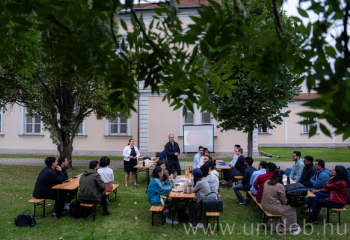The Faculty of Law and Political Sciences at the University of Debrecen welcomed its first-year international students with an outdoor picnic on Wednesday. The organizers of Welcome Day – Freshers’ Picnic sought to make sure that the participants should not only gain access to the curriculum required in order to obtain their degrees but they should also become acquainted with the faculty, Hungarian culture and customs, and the city of Debrecen in an informal setting.
News

According to a report presented at the latest annual meeting of Scientific and Social Advisory Board (Tudományos és Társadalmi Tanácsadó Testület - TTTT), during the course of the past year, the University of Debrecen has covered a lot in the fields of education, science, and international collaboration. At the meeting, which was attended by several foreign professors, the members of the council could also hear about the achievements of the University of Debrecen and its objectives for the coming years.
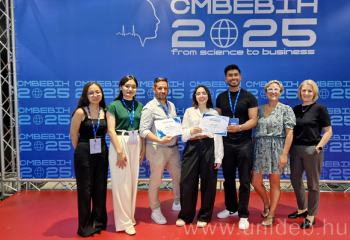
Team Veritas from the University of Debrecen won the international ideas competition OncoTrack Hackathon held between September 11 and 13, where staff members from Innovation Ecosystem Center assisted the Debrecen team on site.
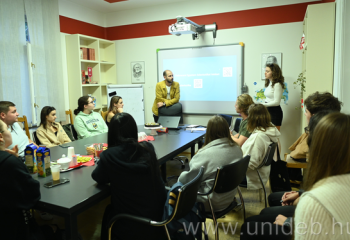
Russian Cultural and Language Center of the Faculty of Humanities is launching a new language course primarily for foreign students enrolled at the University of Debrecen. Besides students of our university, high school students and other residents of Debrecen can also take advantage of this opportunity to learn Russian at one of three levels (beginner, intermediate, and advanced).
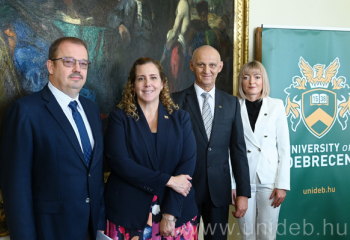
The Ambassador Extraordinary and Plenipotentiary of Ecuador to Hungary held discussions about the possibility of increasing the number of Ecuadorian students at UD and establishing bilateral university relations and research collaboration projects with the University of Debrecen. Her Excellency Ms. Cynthia Maria Mayer Zavala also met with students from her country studying here.
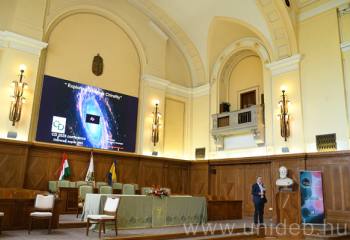
It was Nobel Prize-winning chemist Bernard L. Feringa who opened the event called 20th International Conference on Chiroptical Spectroscopy, which was held in Hungary again after twenty-two years at the University of Debrecen. During the four-day conference, distinguished researchers from around the world gave talks on the latest chiroptical techniques and their applications for studying the spatial structure of organic molecules.

Hungarian and foreign researchers analyzed data from more than 2.6 million zoo births to find out whether it is truly random which gender is born more frequently among mammals and birds. The results show surprising distortions that could jeopardize the long-term success of species conservation programs. The research was published in the prestigious journal Scientific Reports.
